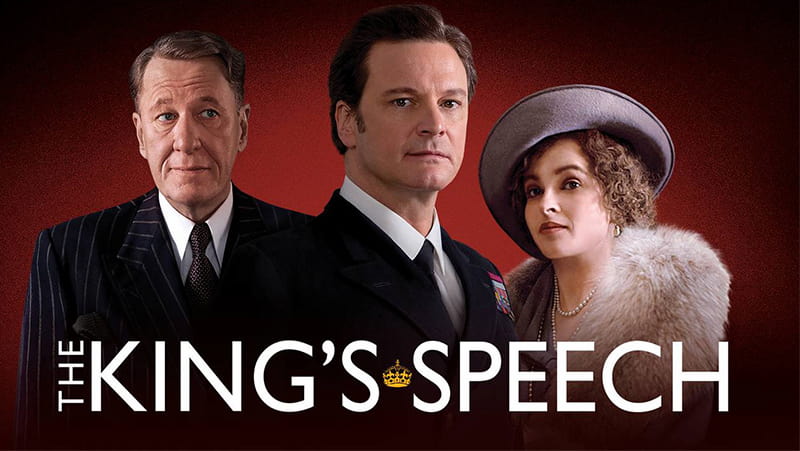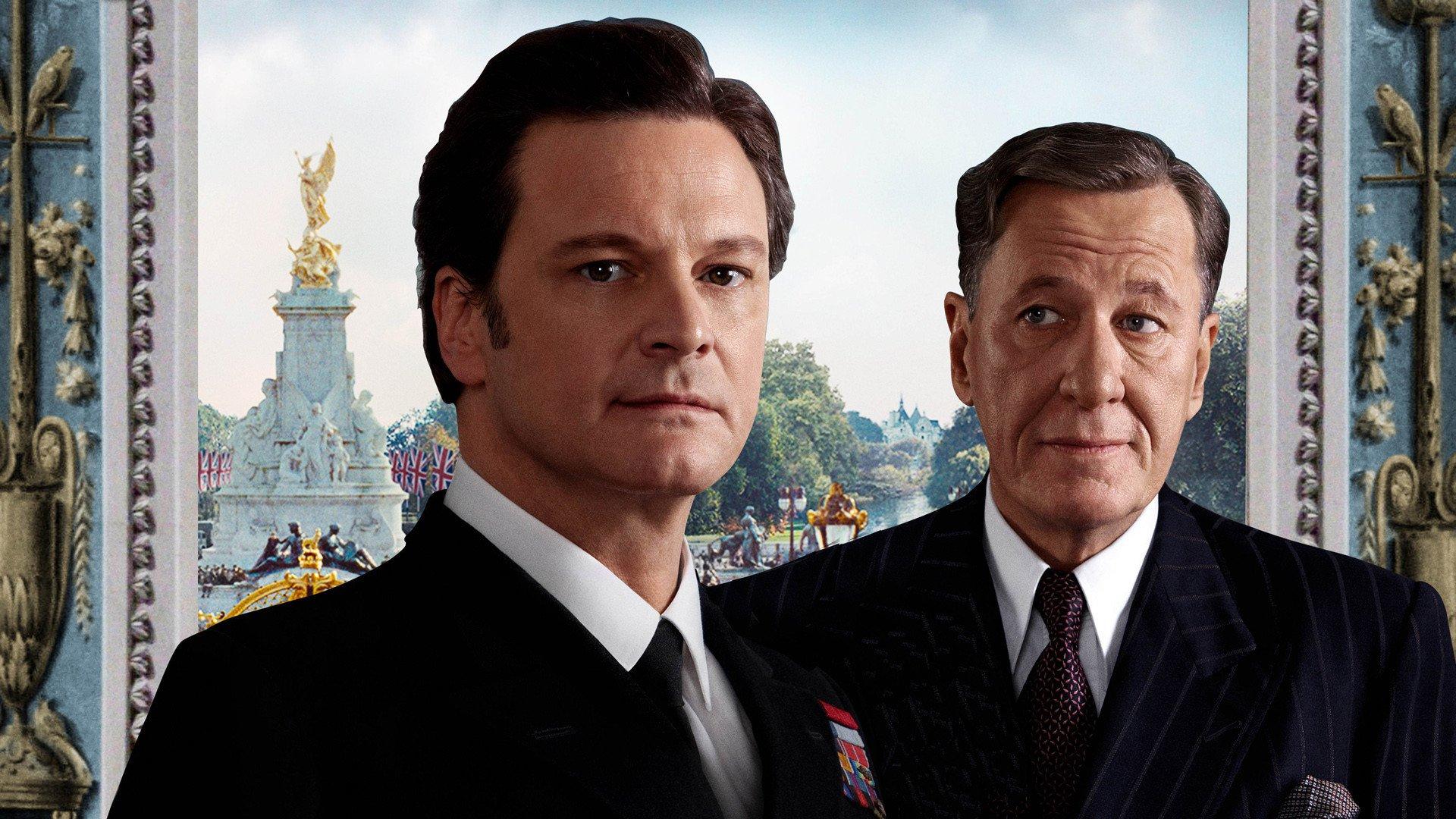15 Interesting Facts :-
Historical Accuracy: The film is based on the true story of King George VI of Britain and his struggle with a speech impediment. It sheds light on the events leading up to his unexpected ascension to the throne and his efforts to overcome his stammer with the help of speech therapist Lionel Logue.
Release Date Significance: “The King’s Speech” was strategically released in late 2010 to coincide with awards season, which greatly contributed to its success, especially during the Oscars.
Critical Acclaim: The film received widespread critical acclaim, particularly for its performances, direction, and screenplay. It won numerous awards, including four Oscars: Best Picture, Best Director, Best Actor, and Best Original Screenplay.
Box Office Success: Despite being a relatively low-budget film, “The King’s Speech” performed exceptionally well at the box office, grossing over $400 million worldwide against a budget of around $15 million.
Colin Firth’s Performance: Colin Firth’s portrayal of King George VI earned him widespread praise and his first Academy Award for Best Actor. His dedication to accurately depicting the king’s struggles with his speech impediment was evident throughout the film.
Supporting Cast: Alongside Firth, Geoffrey Rush delivered a remarkable performance as Lionel Logue, the unorthodox speech therapist who forms an unlikely friendship with the king. Helena Bonham Carter also received acclaim for her role as Queen Elizabeth, George VI’s supportive wife.
Authenticity in Speech Therapy: The film consulted with experts in the field of speech therapy to ensure accuracy in depicting the techniques used by Lionel Logue to help King George VI overcome his stammer.
Historical Significance: “The King’s Speech” not only explores the personal struggles of King George VI but also provides insight into the broader historical context, including the looming threat of World War II and the role of the monarchy during a turbulent period in British history.
International Appeal: Despite its focus on British history, the themes of overcoming adversity and finding one’s voice resonated with audiences worldwide, contributing to its universal acclaim and success.
Legacy: The film’s impact extended beyond the silver screen, sparking conversations about speech disorders and the importance of effective communication. It brought renewed attention to King George VI’s legacy and his contributions during a pivotal moment in history.
Accolades: In addition to its Oscar wins, “The King’s Speech” received numerous accolades from various film festivals, critics’ associations, and industry guilds, solidifying its place as one of the most celebrated films of its time.
Cultural Influence: The film’s success led to adaptations in various forms, including a stage play and a book, further cementing its cultural significance and enduring popularity.
Historical Locations: Many scenes were filmed in authentic historical locations, adding to the film’s immersive experience and visual authenticity.
Inspirational Theme: At its core, “The King’s Speech” is a story of perseverance, friendship, and the power of self-belief, resonating with audiences of all ages and backgrounds.
Educational Value: Beyond its entertainment value, the film serves as an educational tool, shedding light on an often-overlooked aspect of history and promoting empathy and understanding for those facing similar challenges with communication.
1. Behind-the-Scenes Stories:
The camaraderie between the cast and crew of “The King’s Speech” was palpable, with actors immersing themselves in their roles and forging lasting bonds. Colin Firth, who portrayed King George VI, diligently studied recordings of the monarch’s speeches and spent hours perfecting his stammer to deliver a truly authentic performance.
Geoffrey Rush, in his role as Lionel Logue, the unconventional speech therapist, brought a sense of warmth and humor to the set, lightening the mood during intense filming sessions. His improvisational skills added depth to the dynamic between Logue and the king, creating moments of genuine connection on screen.
Behind closed doors, director Tom Hooper meticulously crafted each scene, balancing historical accuracy with artistic vision. From meticulously recreating period costumes to scouting authentic locations, every detail was scrutinized to transport audiences back to the turbulent era of the late 1930s.
2. Production Challenges:
Despite the film’s polished facade, the production of “The King’s Speech” was not without its hurdles. One of the most significant challenges stemmed from the limited budget, which forced the crew to find creative solutions to achieve the desired cinematic effect. From repurposing existing sets to employing innovative lighting techniques, every resource was maximized to bring the story to life within budget constraints.
The historical accuracy of the film presented its own set of challenges, with meticulous attention paid to details such as architecture, costumes, and dialects. Researching and recreating the speech therapy techniques used by Lionel Logue required collaboration with experts in the field, ensuring authenticity in every scene depicting the king’s journey to overcome his stammer.
3. Accidents:
Despite rigorous safety protocols, accidents can occur on any film set, and “The King’s Speech” was no exception. During filming, actor Colin Firth experienced a minor injury while rehearsing a particularly emotional scene, highlighting the physical and emotional toll that portraying such demanding roles can take on actors.
Additionally, inclement weather posed challenges during outdoor shoots, with unexpected rain showers disrupting filming schedules and requiring last-minute adjustments to accommodate changing conditions. However, the resilience of the cast and crew prevailed, with each setback serving as a testament to their dedication to bringing the story to fruition.
4. Notable Anecdotes:
One of the most memorable moments on set occurred during the filming of the climactic speech scene, where King George VI addresses the nation on the eve of World War II. As Colin Firth delivered his powerful performance, the atmosphere on set was electric, with cast and crew members alike holding their breath in anticipation of capturing the perfect take.
Off-camera, moments of levity provided much-needed respite from the intensity of filming, with Geoffrey Rush’s quick wit and playful demeanor infusing the set with laughter and camaraderie. Whether sharing behind-the-scenes anecdotes or engaging in impromptu rehearsals, the cast formed a close-knit ensemble that mirrored the bond between their on-screen counterparts.
In retrospect, the making of “The King’s Speech” was a labor of love fueled by passion, perseverance, and a shared commitment to honoring the legacy of King George VI. Behind the scenes, amidst the hustle and bustle of production, friendships were forged, challenges were overcome, and a timeless tale of courage and resilience was brought to life for audiences around the world to cherish and admire.

Released Date: December 24, 2010 (United Kingdom), November 26, 2010 (United States)
Genre: Biography, Drama, Historical
Detail Plot: “The King’s Speech” follows the journey of King George VI of Britain (played by Colin Firth) as he unexpectedly ascends to the throne following the abdication of his brother, King Edward VIII (played by Guy Pearce). Plagued by a severe stammer, George seeks the help of unorthodox speech therapist Lionel Logue (played by Geoffrey Rush) to overcome his impediment and find his voice. As Britain stands on the brink of World War II, George must confront his fears and insecurities to deliver a crucial speech that will inspire and unite his nation.
Cast:
- Colin Firth as King George VI
- Geoffrey Rush as Lionel Logue
- Helena Bonham Carter as Queen Elizabeth
- Guy Pearce as King Edward VIII
- Timothy Spall as Winston Churchill
- Derek Jacobi as Cosmo Gordon Lang
- Jennifer Ehle as Myrtle Logue
- Michael Gambon as King George V
Crew:
- Director: Tom Hooper
- Writer: David Seidler
- Producers: Iain Canning, Emile Sherman, Gareth Unwin
Public Rating: 8.0/10 on IMDb
Reviews: “The King’s Speech” received widespread critical acclaim, with praise directed towards its performances, direction, and screenplay. Critics lauded Colin Firth’s portrayal of King George VI, as well as the chemistry between the cast members.
Trivia:
- The film was based on the true story of King George VI’s struggle with a speech impediment.
- Colin Firth won the Academy Award for Best Actor for his role as King George VI.
- Geoffrey Rush and Helena Bonham Carter received Oscar nominations for their performances.
- The film was nominated for 12 Academy Awards in total, winning four.
- King George VI’s actual speech therapist, Lionel Logue, was a real person, and his techniques were accurately depicted in the film.
Notable Quotes:
- “I have a voice!” – King George VI
- “The nation believes that when I speak, I speak for them, but I can’t speak.”
- “My duty is to serve the people, not the politicians.”
Budget and Box Office Collection:
- Budget: Approximately $15 million
- Box Office Collection: Over $400 million worldwide
Awards, Nominations or Achievements:
- Won four Academy Awards: Best Picture, Best Director, Best Actor, and Best Original Screenplay
- Nominated for 12 Academy Awards in total
Goofs: (Any goofs found in the film, if applicable, can be listed here.)
Soundtracks:
- The film features a moving score composed by Alexandre Desplat, which captures the emotional depth of King George VI’s journey.
Technical Specs:
- Runtime: 118 minutes
- Aspect Ratio: 1.85:1
- Sound Mix: Dolby Digital | DTS (as DTS Digital Surround) | SDDS

